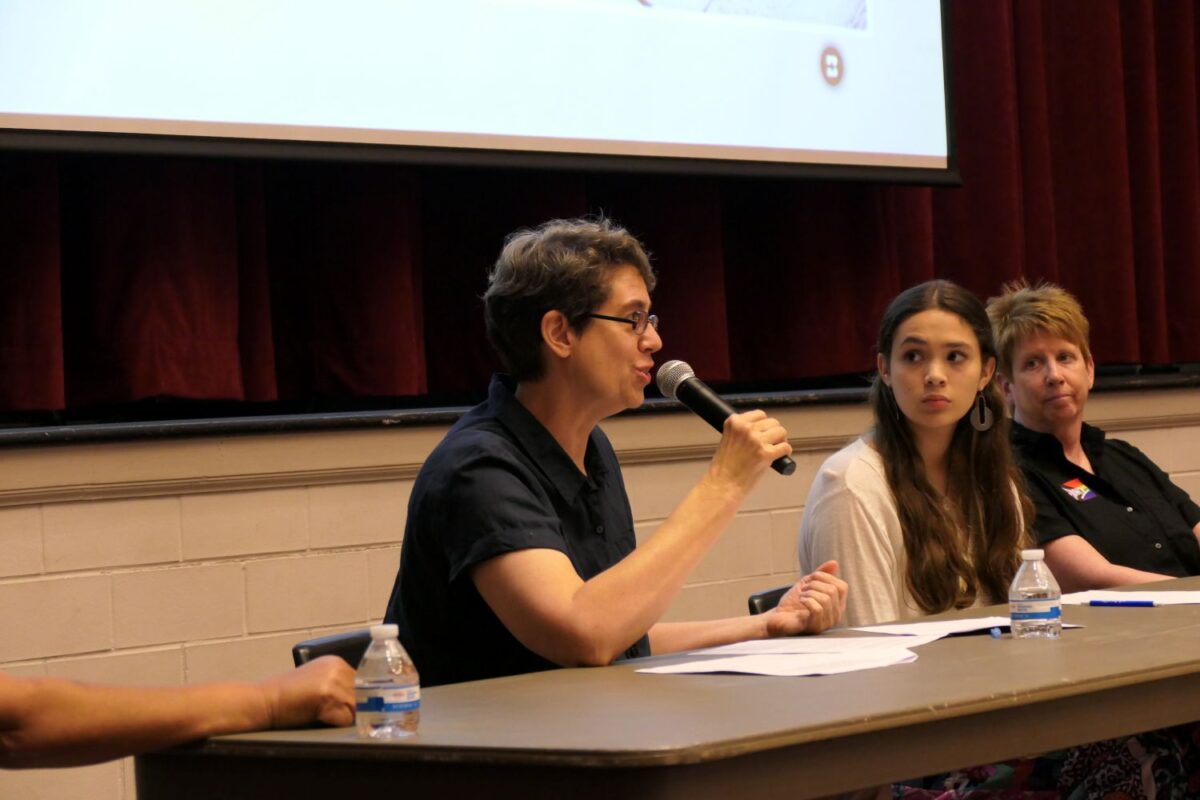Panelists at a June 18 town hall came at the issue from several different angles, but all agreed that democratic due process and individual rights are facing threats, and that protecting them requires involvement from area residents.
Dr. Joanna Swanger, an Earlham College professor who teaches about civic movements around the world, told the 30 attendees gathered at McGuire Hall in Richmond that shifts at the federal level are translating to potential erosion of individual rights. Swanger said that as the executive branch asserts more power, the legislative branch surrenders its power and the judicial branch is often ignored, checks and balances built into the Constitution are not having the effect they should.
Swanger also reviewed historical examples of a trend that when the economy is strong, the U.S. generally can be more welcoming and inclusive, but when times are tough, the country exhibits behaviors that are more exclusionary and, in some cases, Swanger said, racist and xenophobic.
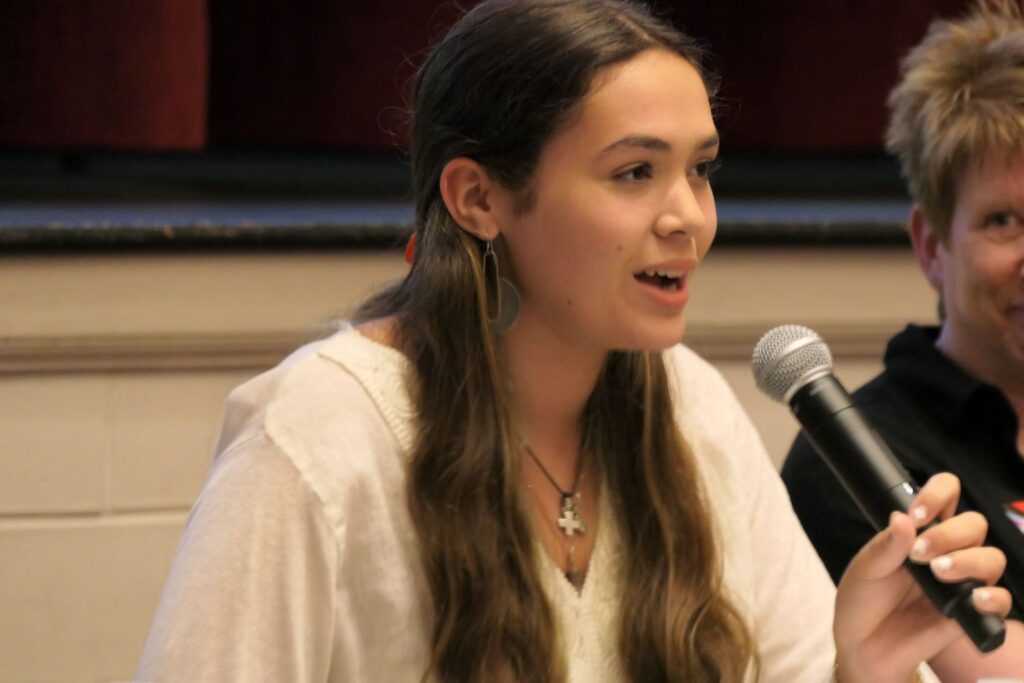
Swanger and panelist Taytem Rivera, a Richmond student who recently won the Wayne County Civics Bee, both spoke about how the Constitution offers more protections for non-citizens than many people understand. Rivera said she often sees misunderstandings and misinformation about individual rights circulating among her peers and their families, and that it’s fueled by an overreliance on social media and not enough engagement with accurate information. She said attending the recent “No Kings” rally, held June 14 in Richmond, helped her see what it looks like for the community to come together around an important cause.
Panelist Barb Tully with the League of Women Voters reviewed how recent legislative changes are making it more difficult to vote in Indiana when the state already has some of the lowest voter turnout in the nation. Tully expressed relief that some recent efforts to limit early voting have failed, especially for places like Wayne County, where, according to Tully, in the 2024 general election, 65% of voters used early or absentee voting options. But, Tully said, the trend from legislators is to keep putting up more barriers that fuel voter disenfranchisement. “It’s death by a thousand cuts,” she said.
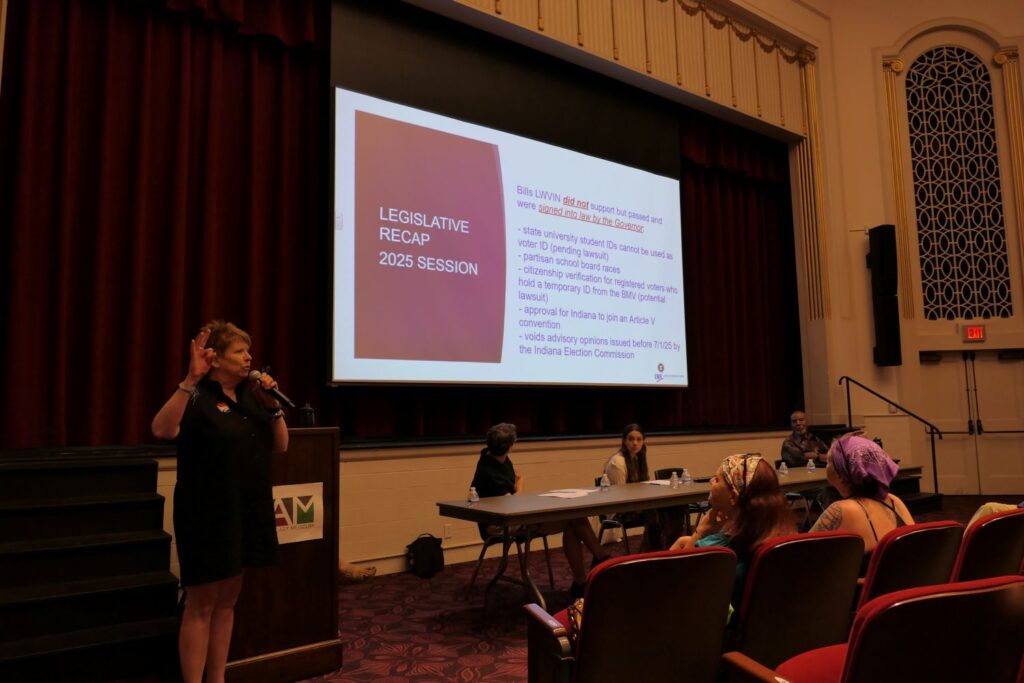
Tully shared a LWV-produced “citizens’ handbook” for Hoosiers that reviews the basics of participating in politics, voting and ways to make an impact. It’s available online at lwvin.org/citizenshandbook.
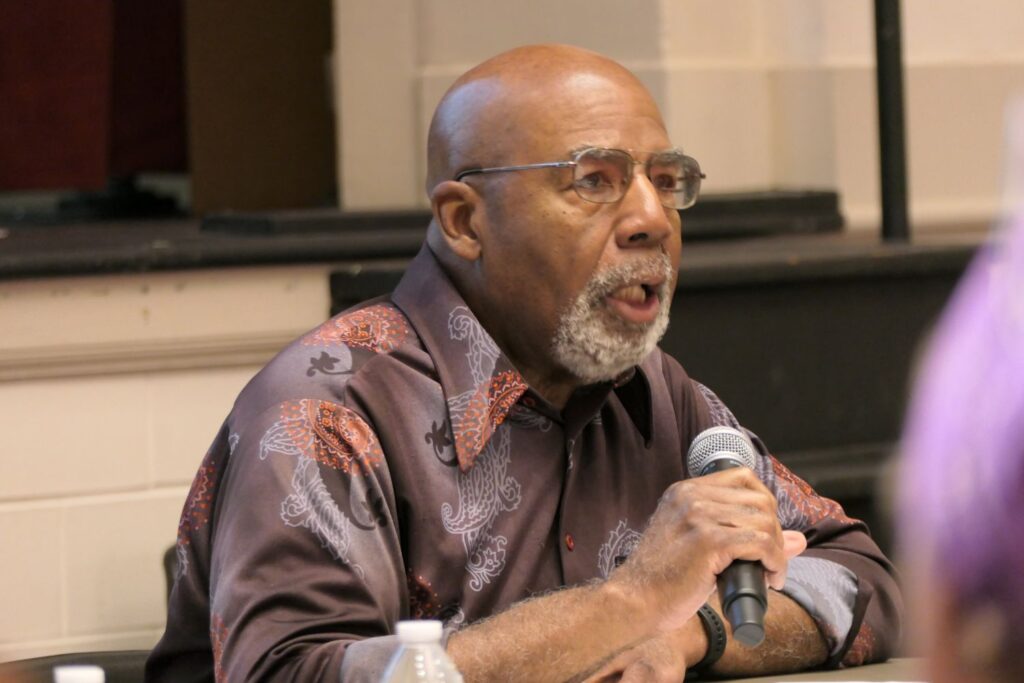
Panelist Bob Hunter spoke about his experience as former chair of the Richmond Human Rights Commission, which he said is still mandated by law to exist and to have commission members appointed by the city. Richmond’s common council voted 5-4 to defund the commission’s operations in 2009. Hunter called the current situation “illegal.”
Hunter’s son Daniel Hunter, an activist and community organizer living in Philadelphia, also addressed the event by prerecorded video. Daniel said that there are multiple ways individuals can help, including protecting others, protesting policies, defending democratic institutions, and building alternative political and cultural institutions. Daniel asked attendees to consider which categories of action might be the best fit for them individually.
The presentation and Q&A session was moderated by Kelley Cruse-Nicholson and organized by the Richmond branch of the NAACP No. 3066. The group scheduled a series of “community voices” town hall gatherings where anyone can share questions and concerns, learn information from experts, and connect with organizations offering resources.
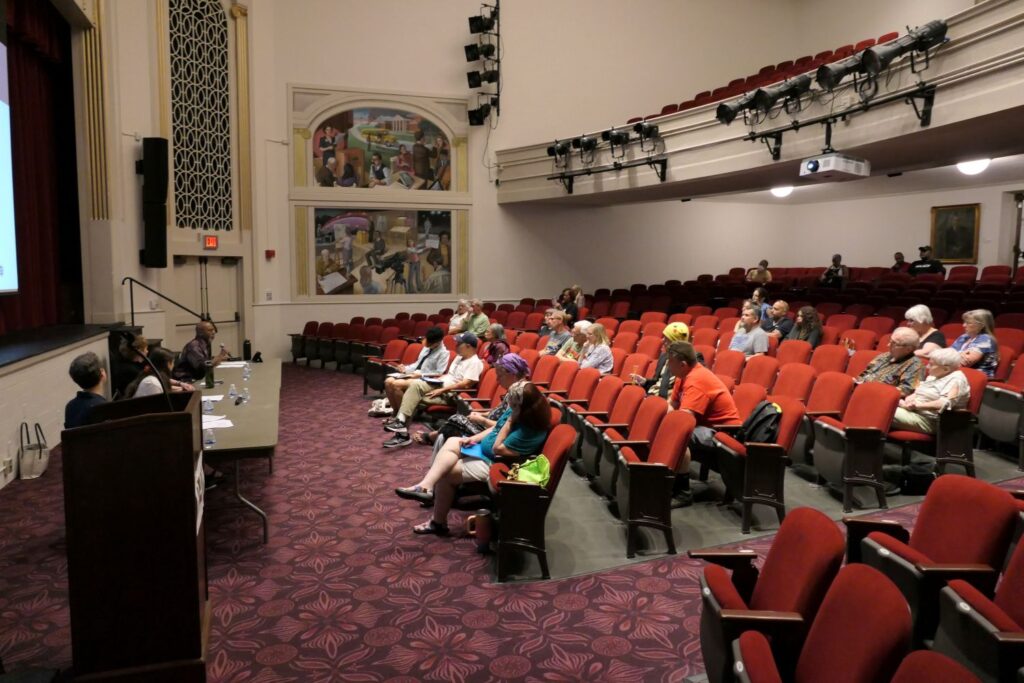
Chapter secretary Debbie Carter said they organized this event after hearing concerns from community members about due process and how courts have been bypassed in other cities when considering individual rights. “People are scared,” Carter said.
Tully acknowledged that finding ways to protect each other and create change can be intimidating, but cited studies showing that even if a relatively small percentage of the population gets engaged, it can affect policies in meaningful ways. “Be a pebble in your pond,” Tully said.
A version of this article appeared in the June 25 2025 print edition of the Western Wayne News.

